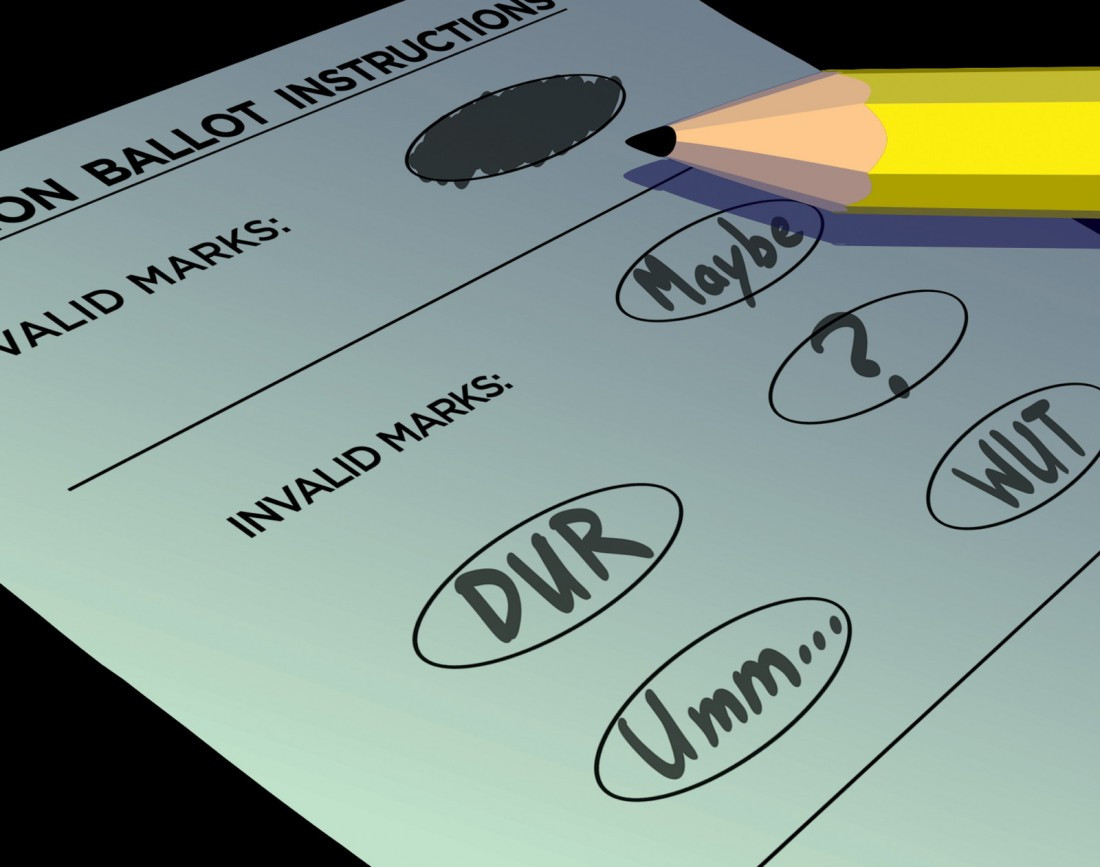The myth of youth apathy
Potential voters are being ignored
For a young viewer, watching the opening leaders debate of the 2015 federal election was a disorienting experience. While the crisis of student debt received but a passing mention, party leaders argued passionately about the voter threshold required for Quebec’s secession from Canada.
If the Maclean’s debate failed to produce a decisive moment or “knockout blow,” it did reveal one important truth: young people are not apathetic. We’re alienated from a political process that overlooks the most pressing issues we face.
Far from being coddled or entitled, millennials find themselves in a precarious position. Collectively owing over $17 billion in federal student loans, and facing a labour market where thousands of quality full-time jobs have vanished and tuition fees that have risen higher than the cost of living since 1990, our generation stands to inherit a lower quality of life than our parents.
With these issues receiving so little airtime in recent elections, is it any wonder that two thirds of eligible voters aged 18 to 24 did not vote in 2011?
It doesn’t have to be this way. Across the Atlantic, thousands upon thousands of young people are flocking to the campaign of Jeremy Corbyn, a bearded, 66-year-old backbench MP seeking to lead the United Kingdom’s Labour Party.
Many of these young people have never been involved in politics before, but they are drawn by the candidate’s plan to eliminate tuition fees, alleviate student debt, and tackle youth unemployment through a public investment program.
While the U.K. is not Canada, its population faces similar problems of low youth voter turnout and disinterest in electoral politics. Corbyn, a scruffy and unpolished figure, shows that the way to fix this isn’t through gimmicks or image politics. It’s through putting forward policies that directly address the issues besetting youth.
We don’t have to wait for a Canadian Corbyn to put our concerns on the agenda. Whether it’s discussions with friends and family, pointed questions at local candidate forums or letters to the editor, we can begin changing the conversations now.
It helps that on many issues, public opinion is already on our side; poll after poll shows a majority of Canadians agree that student debt and tuition fees are too high.
Our voices and keyboards are important instruments, but the most powerful tools we have are our ballots. In the last federal election, a mere 6,201 votes across 14 ridings allowed the Conservatives to win a majority mandate. If more young people had voted, the outcome might have been dramatically different.
We’ve experienced the results first hand, as the Harper government has done little to improve our inefficient and ineffective system of student aid, created no more than a handful of paid internship opportunities and introduced the comically misnamed “Fair Elections Act.” While the Conservatives join all political parties in expressing a desire for greater youth participation in politics, passing a bill that makes it more difficult for us to vote exposes their real intentions.
An increase in youth voter turnout could radically alter the way we do politics in this country. Politicians would have no choice but to respond clearly and substantively to the problems confronting young people if their re-election depended on it.
On Oct.19, let’s use our ballots to end the status quo of indifference and inaction.
Peyton Veitch is the president of University of Winnipeg Students’ Association.
Published in Volume 70, Number 1 of The Uniter (September 10, 2015)







